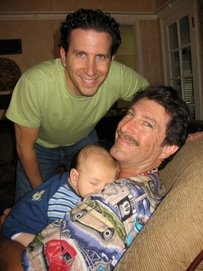This week I received an excellent
question from a participant in my Wealth On Any Income Internet course:
We are having some challenges both
getting onboard with the spending plan. I see the value because this is similar
to how I tracked my finances when I was single. I like seeing trends and making
changed based on that. However, my husband doesn’t want to feel like a miser,
or feel like he shouldn’t be allowed to enjoy his money and spend it as he
wants. We do save a substantial amount each month. He says, “I could die
tomorrow and don’t want to waste the time to figure out where every penny is
going.”
This is an excellent
question/concern and I saw right away my next blog topic.
In a relationship, it's not crucial
for both parties to track spending, BUT both parties need to be agreement on
the goals, and "major" spending decisions should be shared and agreed
to. You can do the tracking and Jay can operate on an allowance. He can do
whatever he wants with that and doesn't have to track anything. Only the amount
of the allowance is accounted for. AND it would be a good idea to come up with
another term instead of allowance, like Spending Fund, Fun Money Account,
Anti-Budget Account, Jay's Fund...
When I started this practice many
years ago I noticed things that I could not have been aware of prior. I would
have conversations about eating healthy, buying more fruits and vegetables at
the market and so on. At the time I said I wanted to spend $300 at the market.
I also set aside a spending goal of
$300 for meals out. What I noticed, because I tracked it AND measured the level
of pleasure I got from where I spent my money, was that I had a large surplus
from the amount I wanted to spend at the market, and over spent on meals out.
The point being my actions were not in alignment with what I said I wanted.
That brings up the need to make a
choice: Either I do want to buy, prepare and eat healthy food, or I don't.
What I realized is that I don't want to cook and I don't want to clean up. I do
want to have a conversation with my wife without jumping up and down from the
table. (I forgot a serving spoon; I forgot a napkin; oh, we need the salt, I’d
like more iced tea…) I do want to be served and I chose to SPEND more money
eating out. This is what was important to me.
Granted there are healthy eating
choices when I go out, and I can do that too, but the main point is that you
can't make decisions without accurate information. This has NOTHING to do with
penny pinching. This DOES have to do with spending your money in the ways that
you enjoy consciously, not unconsciously.
Yes, I do say you can live within
your income in 90 days, but that's not your issue. Your issue may be to save
even more money per month and make investments that bring financial freedom to
the both of you in 8 years instead of 10 years. And the tracking can end when
you've developed the habits that you are sure are taking you where you want to
go.
I will have to warn you that once
you start the process, it could be difficult to give it up. After I had about
$5m invested I said, ”I don't need to track my spending any longer. The habits
and choices are set, and I am happy with them.” However, it took about two
years more before I could actually drop the habit of tracking my spending.
Again, this is what the wealthy do, whether they do it themselves or they have
someone else do it for them. I hope this addresses your concern.
By the way, I've seen the ledger
that John D. Rockefeller used when he was 11 years old. He tracked every penny
that came into his life, and where every penny went. (In 1850, a penny actually
had some value.) With Standard Oil he became one of the wealthiest men in the
world, but tracking where money was coming from and where money was going are
the habits that supported his business growth.
By the way, there are many things
you don't have to track. The only things to track are where the money leaks out
during the month, like meals out, groceries, maybe gasoline, clothing, etc. If
you only buy clothing 4 times per year, there's no point to track that. If
someone goes out shopping for clothing several times per week there is another
issue to look at, and it's not about budgeting.



No comments:
Post a Comment